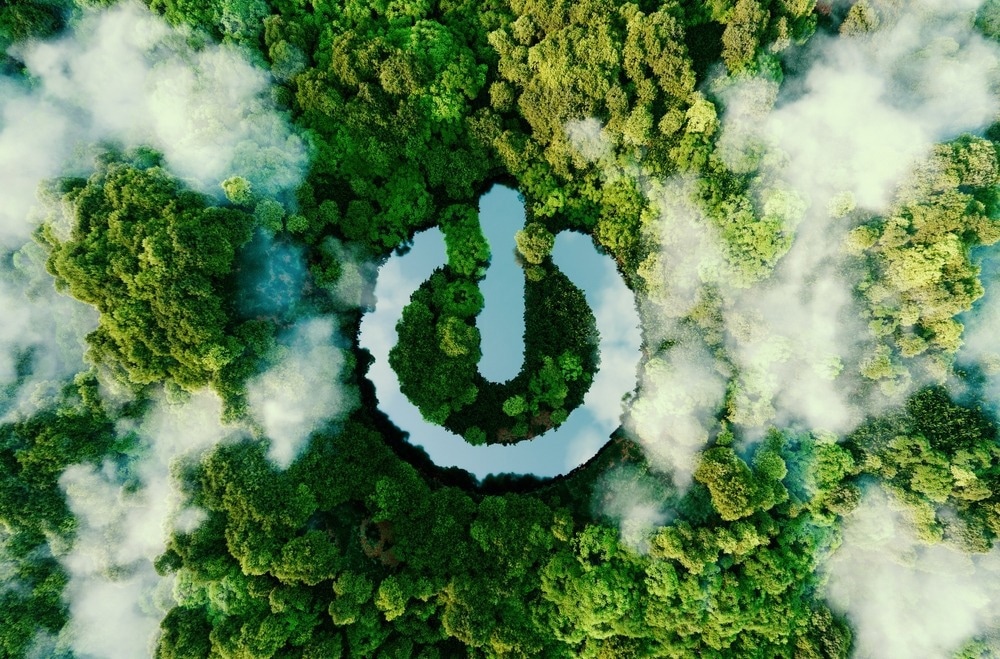Scientists from Ukraine have investigated how to ensure sustainable energy development and the key economic, ecological, and social development policy impacts on strategies that can achieve this sustainability. Their findings have appeared in the journal Energies.

Study: Scenario Modeling of Energy Policies for Sustainable Development. Image Credit: petrmalinak/Shutterstock.com
Achieving a Sustainable Society
Achieving a sustainable, post-carbon economy and society is a complex but urgent undertaking that must address the environmental damage of modern human society.
Energy and resource use is predicted to grow over the coming decades due to the rapid expansion of modern industrialized society. However, there are a number of critical issues which come with the current industrial and economic issues, including climate-change-inducing emissions, rising global temperatures, environmental pollution, resource depletion, and economic and social costs.
Power plants, metallurgical enterprises, mines, transport, and other key energy-intensive industries are major contributors to carbon emissions, with 26.1% of all energy resource consumption in 2020 coming from the industrial sector, 28.4% from transportation, and 28.0% from household use.
According to forecasts, there will be a 2-degree increase in average global temperatures if the current rate of energy consumption continues. A road map is urgently needed to provide a route toward sustainable energy and industrial development. Renewable energy technologies such as wind, solar, and hydropower, alongside nuclear power, are playing a key role in achieving energy sustainability.
The Role of Policies and International Agreements
Sustainable development in the energy sector and other industries requires profound structural changes, with the development of clean energy technologies and the phasing out of fossil fuel plants a key strategy to achieve this. This is a long-term process that will lead to economic, institutional, environmental, and social transformations.
Another key element of the road map toward sustainability is the adoption of international treaties and conventions. Economic, social, and industry-specific regulations at the national level determine individual vectors in the development of markets.
Recognizing the urgency of achieving a green, sustainable economy, the United Nations have introduced Sustainable Development Goals, which cover several aspects of this area of development. The main vector in these goals is the provision of free access to sustainable, dependable, and inexpensive energy. This includes increasing the market share of renewable energy technologies.
The European Union has also introduced its own set of goals, namely the Energy Roadmap 2050, which was adopted in 2012 by the European Commission. Several steps toward a sustainable future are included in this roadmap, ultimately aiming to increase the long-term share of renewables in the energy mix and significantly reduce carbon emissions and energy demand by 2050.
Currently, however, the world is not on target to achieve mid- and long-term reduction of energy consumption and carbon emissions. More effective tools and policies are urgently needed to address rising global temperatures, pollution, loss of biodiversity, and potential societal issues associated with climate change.
The Paper
The new paper in the journal Energies is dedicated to modeling scenarios that can realize sustainable energy development. Data from EU countries has been analyzed by the authors to provide key findings and conclusions.
Taking into account how economic and social development impacts energy consumption indicators in EU countries, the study aims to develop consistent sets of tools and formalize an objective to ensure state administration bodies can realize sustainable energy development.
Data-mining methods have been employed in the research to model energy policy reform scenarios. Furthermore, countries have been clustered, and the impacts of socioeconomic development on energy consumption in EU countries are assessed.
The paper makes a number of contributions to the research field. Firstly, a much larger group of indicators, compared to previous studies, are used to assess the influence of socioeconomic indicators on a country’s energy consumption. Secondly, four scenarios are modeled regarding energy policy reform, which allows for a more comprehensive analysis and prediction that considers multiple factors.
Research Conclusions
Based on the study results, the authors drew key conclusions which can aid sustainable development. Firstly, the volume of energy consumption has a positive relationship with factors such as electricity access, air pollution deaths, greenhouse gas emissions, GDP per capita, industry, heat production, and so forth. An effective toolkit is needed to reform energy markets in the European Union.
Goods and services imports, foreign investment, renewable energy consumption, and R&D expenditure negatively impact indicators. There is a potential in the EU to reduce energy consumption and transition to renewable and energy-saving technologies and resources. Investment and funding in the renewable sector should be a priority for EU energy policies.
Investment in enterprises and increasing the attractiveness of these investments, introducing policies which will ease the transition to renewables, and supporting energy-saving initiatives and projects will be key to improving industrial, economic, and societal uptake of sustainable energy development goals.
Finally, the authors have recognized some shortcomings in their research which must be addressed in future studies. A lack of available data for countries outside the EU, and future studies should take a more global approach to the research question. Furthermore, future research would benefit from the analysis of specific indicators and their influence on nation clustering as well as considering larger numbers of national energy development indicators.
Further Reading
Artyukhova, N et al. (2022) Scenario Modeling of Energy Policies for Sustainable Development Energies 15(20) 7711 [online] mdpi.com. Available at:
Disclaimer: The views expressed here are those of the author expressed in their private capacity and do not necessarily represent the views of AZoM.com Limited T/A AZoNetwork the owner and operator of this website. This disclaimer forms part of the Terms and conditions of use of this website.